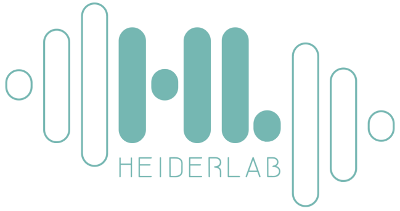CORona Drug InTEractions database
Profiling Molecular Simulations of SARS-CoV-2 Main Protease (Mpro) Binding to Repurposed Drugs Using Neural Network Force Fields
Aayush Gupta
Abstract
With the current pandemic situation caused by a novel coronavirus disease (COVID-19), there is an urgent call to develop a working therapeutic against it. Efficient computations can minimize the efforts by identifying a subset of drugs that can potentially bind to the COVID-19 main protease or target protein (MPRO). The results of computations are accompanied by an evaluation of their accuracy, which depends on the details described by the model used. Neural network models trained on millions of points and with unmatched accuracies are the best approach to employ in this process. In this work, I first identified and described the interaction sites of the MPRO protein using a geometric deep learning model. Second, I conducted virtual screening (at one of the sites identified) on FDA-approved drugs and selected 91 drugs with the highest binding affinities (below -8.0 kcal/mol). Then, I conducted 10 ns of molecular dynamics (MD) simulations using classical force fields and classified 37 drugs to be binding (including Lopinavir, Saquinavir, and Indinavir) based on the RMSD between MD-binding trajectories. To drastically improve the dynamics profile of the 37 selected drugs, I used the highly accurate neural network force field (ANI) method trained on coupled-cluster method (CCSD(T)/CBS) data points and performed 1 ns of binding dynamics for each drug with the protein. Using this approach, 19 drugs were qualified based on their RMSD cutoffs, and based on free energy (ANI/MM/PBSA) computations, 7 of the drugs were rejected. The final selection of 12 drugs was validated based on an MD trajectory clustering approach where 11 of the 12 drugs (Targretin, Eltrombopag, Rifaximin, Deflazacort, Ergotamine, Doxazosin, Lastacaft, Rifampicin, Victrelis, Trajenta, Toposar, and Indinavir) were confirmed to exhibit binding. Further investigations were performed to study their interactions with the protein and an accurate 2D-interaction map was generated. These findings and mappings of drug-protein interactions are highly accurate and may be potentially used to guide rational drug discovery against COVID-19.
Source: ChemRxiv
Related molecules
Related interactions
| Target | Target affiliation | Drug | Type | Result |
|---|---|---|---|---|
| Target | Target affiliation | Drug | Type | Result |
| Name | Synonyms | Genes | Origin |
|---|---|---|---|
| Name | Synonyms | Genes | Origin |
| Name | Synonyms | PubChem | DrugBank | RCSB PDB | ATC |
|---|---|---|---|---|---|
| Name | Synonyms | PubChem | DrugBank | RCSB PDB | ATC |
| Title | Authors | DOI | Source | Article type | Date |
|---|---|---|---|---|---|
| Title | Authors | DOI | Source | Article type | Date |
| Title | Status | Phases | Start Date | Prim. Comp. Date | Comp. Date | First Post. Date |
|---|---|---|---|---|---|---|
| Title | Status | Phases | Start Date | Prim. Comp. Date | Comp. Date | First Post. Date |
CORDITE (CORona Drug InTEractions database) collects and aggregates data from PubMed, MedRxiv, BioRxiv, ChemRxiv and PMC for SARS-CoV-2. Its main focus is set on drug interactions either addressing viral proteins or human proteins that could be used to treat COVID. It collects and provides up-to-date information on computational predictions, in vitro, as well as in vivo study data.
The information provided is for research only and we cannot guarantee the correctness of the data.
Please contact dominik.heider@uni-muenster.de for further information.
Programmable access
There is an open API for access programmatically to the database. The API will print a JSON output:
- Interactions
https://cordite-api.uni-muenster.de/api.php?action=list&table=interaction
- Targets
https://cordite-api.uni-muenster.de/api.php?action=list&table=target
- Drugs
https://cordite-api.uni-muenster.de/api.php?action=list&table=drug
- Publications
https://cordite-api.uni-muenster.de/api.php?action=list&table=publication
- Clinical trials
https://cordite-api.uni-muenster.de/api.php?action=list&table=clinical_trial

